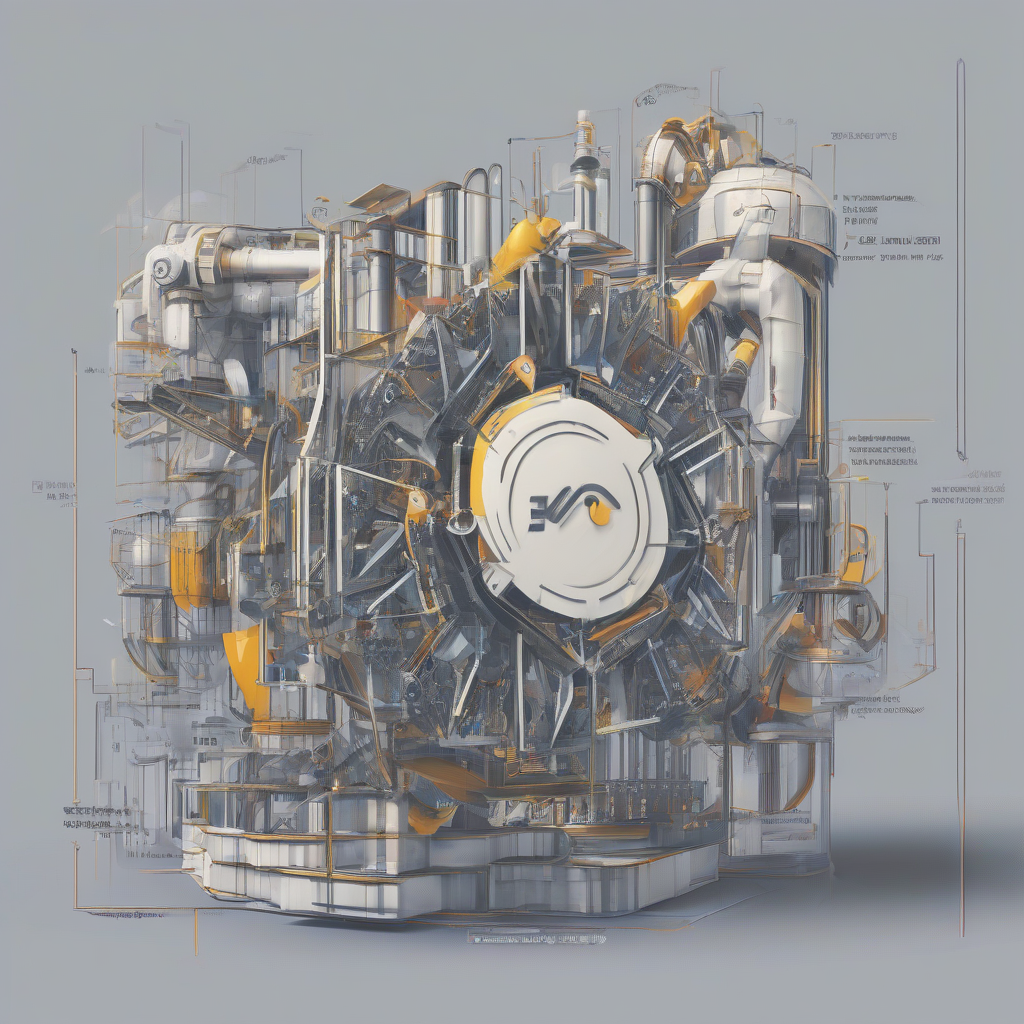Revolutionizing the Factory Floor: A Deep Dive into Industry 4.0 Manufacturing
Industry 4.0, also known as the fourth industrial revolution, represents a paradigm shift in manufacturing, driven by the convergence of advanced technologies. This transformative era leverages interconnected systems, data exchange, and automation to optimize processes, enhance efficiency, and create entirely new possibilities within the manufacturing landscape. This in-depth exploration delves into the core components of Industry 4.0 manufacturing, examining its impact on various aspects of production and the challenges involved in its implementation.
Key Technologies Driving Industry 4.0 Manufacturing
The foundation of Industry 4.0 rests upon several interconnected technologies, each playing a crucial role in its overall effectiveness. These include:
- Internet of Things (IoT): The interconnection of physical devices, vehicles, buildings, and other items—embedded with electronics, software, sensors, actuators, and network connectivity—that enables these objects to collect and exchange data.
- Big Data Analytics: The process of examining large and complex datasets to identify patterns, trends, and insights that can inform decision-making and improve operational efficiency. This is critical for predictive maintenance and process optimization.
- Cloud Computing: The on-demand availability of computer system resources, especially data storage and computing power, without direct active management by the user. This allows for scalable and flexible data processing and storage.
- Cyber-Physical Systems (CPS): The integration of computational capabilities with physical processes, creating systems that can monitor, control, and optimize physical systems in real-time. This is essential for automation and process control.
- Artificial Intelligence (AI) and Machine Learning (ML): AI and ML algorithms enable machines to learn from data, make predictions, and automate complex tasks. This leads to improved decision-making, predictive maintenance, and quality control.
- Robotics and Automation: Advanced robotics systems and automation technologies enable increased efficiency, precision, and flexibility in manufacturing processes. Collaborative robots (cobots) are also transforming the factory floor by working alongside human workers.
- Additive Manufacturing (3D Printing): This technology allows for the creation of complex parts and products on demand, reducing lead times and enabling customized manufacturing.
- Augmented Reality (AR) and Virtual Reality (VR): AR and VR technologies enhance training, improve collaboration, and assist in remote maintenance and troubleshooting.
- Blockchain Technology: While less prevalent currently, blockchain offers potential benefits in supply chain transparency, traceability, and security.
Impact of Industry 4.0 on Manufacturing Processes
The integration of Industry 4.0 technologies profoundly impacts various aspects of manufacturing, leading to significant improvements across the board:
1. Enhanced Productivity and Efficiency:
Automation and optimized processes result in increased output and reduced production times. Real-time data analysis enables proactive identification and resolution of bottlenecks, further boosting efficiency.
2. Improved Quality Control:
Real-time monitoring and data analysis allow for early detection of defects, minimizing waste and improving product quality. AI-powered quality inspection systems further enhance accuracy and speed.
3. Predictive Maintenance:
By analyzing sensor data from machines, predictive maintenance models can anticipate potential failures and schedule maintenance proactively, reducing downtime and maintenance costs.
4. Optimized Supply Chain Management:
Improved data visibility and real-time tracking of materials and goods enhance supply chain efficiency and responsiveness. Blockchain technology offers further enhancements in transparency and traceability.
5. Enhanced Flexibility and Customization:
Industry 4.0 enables greater flexibility in production, allowing manufacturers to adapt quickly to changing market demands and produce customized products efficiently. Additive manufacturing plays a crucial role here.
6. Improved Worker Safety:
Automation of hazardous tasks and the use of collaborative robots reduce risks to human workers, creating a safer working environment.
7. Data-Driven Decision Making:
The abundance of data generated by Industry 4.0 technologies provides valuable insights for informed decision-making at all levels of the organization.
Challenges in Implementing Industry 4.0
Despite the significant benefits, implementing Industry 4.0 presents several challenges:
- High Initial Investment Costs: Implementing Industry 4.0 technologies requires significant upfront investment in hardware, software, and integration services.
- Data Security and Privacy Concerns: The interconnected nature of Industry 4.0 systems creates vulnerabilities to cyberattacks and data breaches. Robust cybersecurity measures are crucial.
- Integration Complexity: Integrating various Industry 4.0 technologies and legacy systems can be complex and require specialized expertise.
- Lack of Skilled Workforce: The successful implementation of Industry 4.0 requires a workforce with the skills and knowledge to operate and maintain the new technologies.
- Standardization Issues: The lack of industry-wide standards for data exchange and communication can hinder interoperability between different systems.
- Resistance to Change: Implementing Industry 4.0 requires a cultural shift within the organization, and resistance to change from employees can hinder adoption.
- Return on Investment (ROI) Uncertainty: The ROI of Industry 4.0 implementations can be difficult to predict, making it challenging to justify the investment.
The Future of Industry 4.0 Manufacturing
Industry 4.0 is not a static concept; it is constantly evolving as new technologies emerge and existing ones mature. Future trends include:
- Increased use of AI and ML: AI and ML will play an even more significant role in optimizing manufacturing processes, predicting failures, and improving decision-making.
- Advancements in Robotics and Automation: Robots will become more sophisticated and collaborative, working alongside humans to perform a wider range of tasks.
- Greater Focus on Sustainability: Industry 4.0 will drive greater sustainability in manufacturing through optimized resource utilization, reduced waste, and improved energy efficiency.
- Enhanced Cybersecurity: Robust cybersecurity measures will be essential to protect against cyberattacks and data breaches.
- Digital Twins: Digital twins, virtual representations of physical assets and processes, will be increasingly used for simulation, optimization, and predictive maintenance.
- Edge Computing: Processing data closer to the source (the edge) will reduce latency and improve real-time responsiveness.
- Increased Adoption of Blockchain Technology: Blockchain will play a greater role in enhancing supply chain transparency and security.
In conclusion, Industry 4.0 is transforming the manufacturing landscape, offering significant opportunities for increased efficiency, improved quality, and enhanced flexibility. While challenges exist, the potential benefits are substantial, making the adoption of Industry 4.0 technologies a strategic imperative for manufacturers seeking to remain competitive in the global marketplace.
